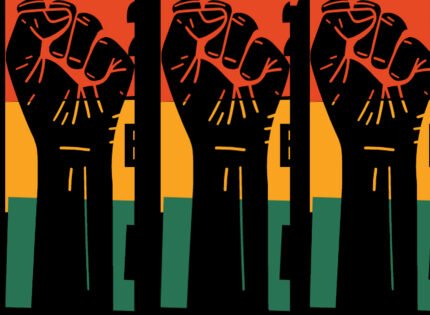 Fixating singularly on the past sends a message that our greatest days are behind us
Fixating singularly on the past sends a message that our greatest days are behind us
While Black History Month’s acknowledgement and celebration by the nation is a magnanimous gesture, the falsehoods of Africa’s history are to be fiercely and unapologetically challenged.
While it is extremely important to never forget our journey, it is much more important to focus on whom we currently are, and to create a vision of whom we wish to become in the future.
Because, whether intentionally or not, when we fixate singularly on the past we send a subliminal message especially to the youth that we are less than viable today, and that our greatest days are behind us, and that is a hugely erroneous message.
We are a new culture, and ceased being Africans when it became necessary to adapt to the farms, the homes and the society as a whole.
Neither are we simply Blacks–we became something more than simply Blacks when it became necessary to become more than simple Blacks for our very survival.
We are a brand new culture–a culture conceived in pain, delivered into turmoil, baptized in deprivation, and weaned on injustice. And since adversity is experience, and experience translates into knowledge, we have nothing to be ashamed of.
The uniquely pointed adversity that we have experienced makes us more, rather than less. Thus, we are a culture that is only now in the infancy of its development. For that reason, we cannot hope to compete, lie-for-lie, with ancient cultures relative to history, since our history is only now being written.
The fact that we are a new culture does not mean that we are anything less than the older cultures, it simply means that our greatest contribution to mankind lies before us. We do not have to look back to antiquity to find a source of pride.
History has been ignored and re-written according to who is in power, and this has been the tendency for millennia. It translates into “his-story”—the way one understands or interprets history from his or her own perspective to his or her own benefit.
We must consciously and sub-consciously understand that the history being taught in schools is not for our benefit, but instead is what best serves the interest of the mainstream culture.
The deliberate omission in history books of Blacks and their contributions to Canada, their neglected accomplishments in every area of endeavor throughout Canadian history, the constant plea for inclusion and reinsertion serve as ample evidence of the absence of our presence.
The most cursory glance demonstrates that there is something unusually unique about this new culture.
According to James Baldwin, “History does not refer merely, or even principally, to the past. On the contrary, the great force of history comes from the fact that we carry it within us, are unconsciously controlled by it in many ways, and history is literally present in all that we do.”
As Blacks we must take pride in which we are now, and begin to realize that in our own journey through life, history is being made.
Why do we feel that we must constantly look all the way back to antiquity to find and revel in the greatness of our people?
Instead what we should be focusing on is building on those accomplishments.
Blacks are a new culture, and it is clear to see that in this 21st century we are daily making history.
We now stand as new beings—neither simply African, nor simply Canadian but hybrids forced to transcend the sum of our parts; now armed with the wisdom of deprivation, and fortified with the confidence of a survivor and a ravishing hunger for greatness.
The steel that once degraded our ancestors, that chained them in bondage to this bitter soil, and the blood and sweat that once drenched their brows, now burn with resolve and a sense of purpose within our bones.














